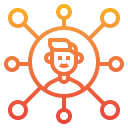
AI-Driven Innovations in Healthcare
Artificial Intelligence is reshaping the healthcare industry, ushering in a new era where data-driven insights, automation, and advanced algorithms are unlocking improved patient outcomes, operational efficiencies, and novel treatment methods. By integrating sophisticated AI technologies, healthcare providers are revolutionizing diagnostics, streamlining complex processes, and personalizing care like never before. As the sector embraces these groundbreaking solutions, AI has become a cornerstone in tackling long-standing healthcare challenges and future-proofing systems for greater resilience and responsiveness.
Augmenting Imaging and Radiology
The introduction of AI into medical imaging has brought about a paradigm shift in the speed and accuracy of diagnoses. Deep learning algorithms rapidly analyze CT, MRI, and X-ray scans, flagging anomalies and subtle patterns that might escape human eye. This technology not only aids radiologists in detecting conditions such as tumors, fractures, or infections more reliably, but also reduces diagnostic turnaround times dramatically. As a result, patients benefit from more timely interventions and improved prognoses, while radiology departments experience greater efficiency.
Revolutionizing Pathology Workflows
Pathology processes are traditionally labor-intensive, involving meticulous examination of tissue samples and slides. AI-driven digital pathology systems are streamlining these workflows by automating the identification of abnormal cells, measuring biomarkers, and classifying tissue patterns. Enhanced by machine learning, these systems offer consistent, reproducible analyses that support pathologists in making more confident decisions. This accelerates diagnostic pathways and optimizes outcomes for patients, particularly in complex conditions like cancer.
Enhancing Early Disease Detection
Earlier detection of diseases often correlates with better treatment results and resource utilization. AI algorithms can sift through patient histories, genetic data, and clinical records at immense scale, spotting early signs of chronic illnesses or rare disorders. These predictive models empower clinicians to intervene proactively, mitigate risks, and craft individualized care plans. By catching symptoms before they escalate, AI drives a shift from reactive to preventive medicine, laying the groundwork for healthier populations.
Previous slide
Next slide
Revolutionizing Patient Care and Personalization
Individualized Treatment Plans
The ability of AI to process genetic data, medical histories, and lifestyle information allows for the creation of individualized treatment plans that can adapt as new information becomes available. These personalized regimens consider how a patient’s unique genetic makeup may affect responses to medications or therapies, leading to safer and more effective care. With pharmaceuticals and interventions tailored to each person, healthcare providers elevate clinical effectiveness and minimize adverse effects.
Virtual Health Assistants
AI-powered virtual health assistants are transforming the patient experience by offering round-the-clock access to guidance, symptom checking, and mental health support. These intelligent systems use natural language processing to understand and respond to patients’ questions, providing actionable advice and connecting individuals to healthcare professionals when necessary. Virtual assistants help bridge gaps in care, increase patient engagement, and free healthcare workers to focus on complex cases, thereby enhancing overall system efficiency.
Dynamic Patient Monitoring
Continuous monitoring powered by AI enables real-time insights into a patient’s health, even outside the clinical setting. Smart devices collect vast streams of biometric data—such as heart rate, oxygen levels, or glucose trends—which AI algorithms analyze for anomalies and emerging risks. Automated alerts can prompt timely interventions, reducing hospital readmissions and emergencies. This proactive style of care ensures that issues are caught sooner, further personalizing the healthcare journey for each patient.
Advancing Operational Efficiency and Resource Management
Administrative burdens have long hampered healthcare delivery, consuming resources and time that could be better spent on patient care. AI-driven automation addresses tasks such as patient scheduling, billing, and claims processing with unprecedented speed and accuracy. By reducing manual errors and minimizing paperwork, these tools allow healthcare professionals to devote more time to direct patient interaction. The result is a smoother, more efficient administrative landscape with measurable improvements in patient satisfaction and organizational productivity.
